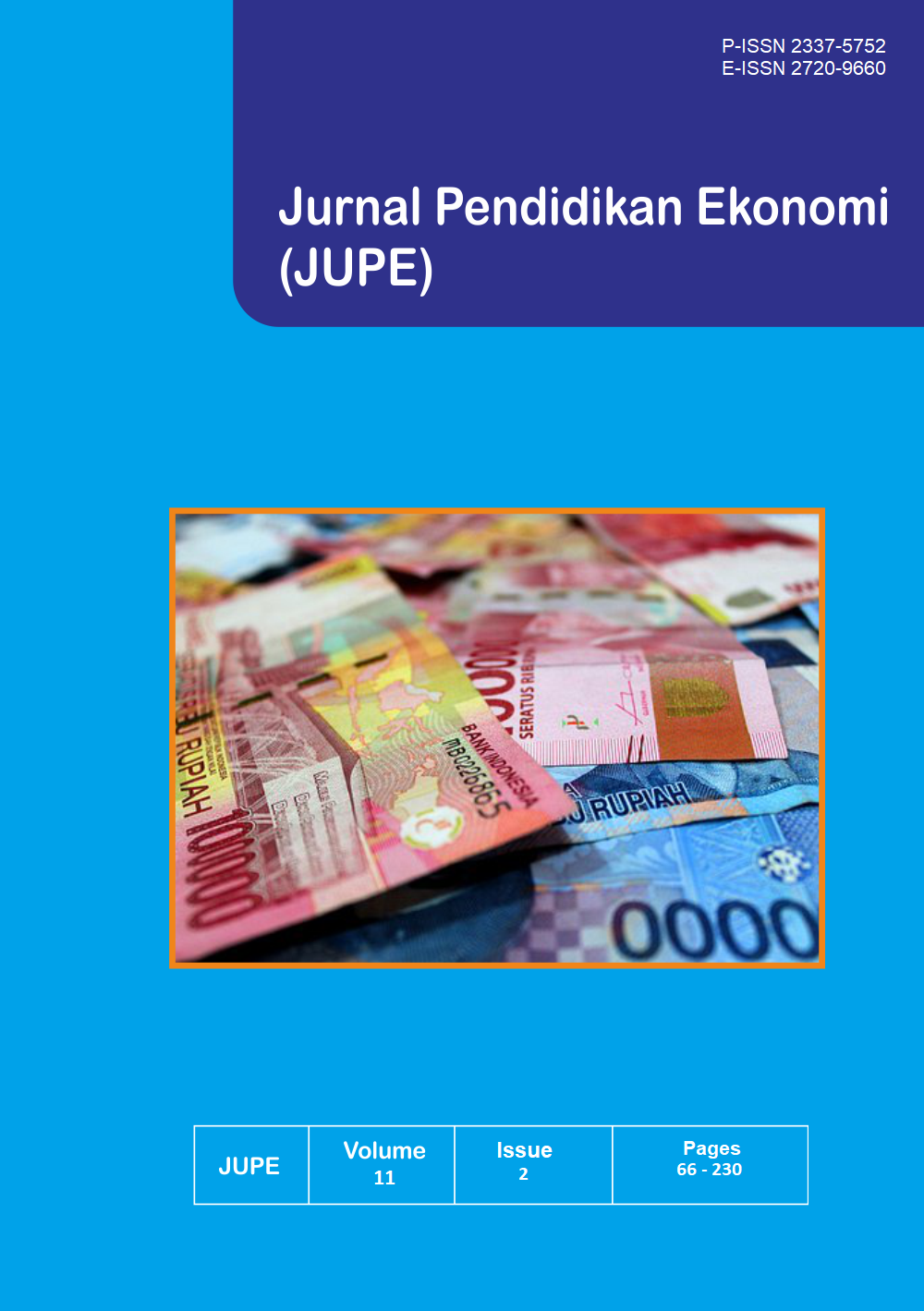Kolaborasi Model PBL Dan Model STAD dalam Pembelajaran Ekonomi
DOI:
https://doi.org/10.26740/jupe.v11n2.p92-102Keywords:
Critical thinking, Problem-Based Learning, Student Team Achievement Development (STAD)Downloads
Download data is not yet available.
Downloads
Published
2023-05-02
How to Cite
Andriyati, R., & Noviani, L. (2023). Kolaborasi Model PBL Dan Model STAD dalam Pembelajaran Ekonomi. Jurnal Pendidikan Ekonomi (JUPE), 11(2), 92–102. https://doi.org/10.26740/jupe.v11n2.p92-102
Issue
Section
Articles
License
Copyright
- Authors retain copyright and grant the journal right of first publication with the work simultaneously licensed under a Creative Commons Attribution License that allows others to share the work with an acknowledgment of the work's authorship and initial publication in this journal.
 Abstract views: 449
,
Abstract views: 449
, PDF Downloads: 645
PDF Downloads: 645











